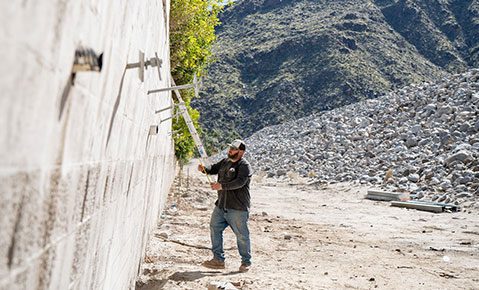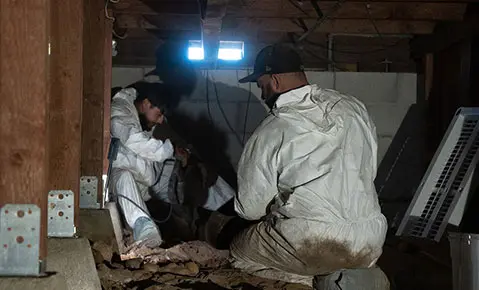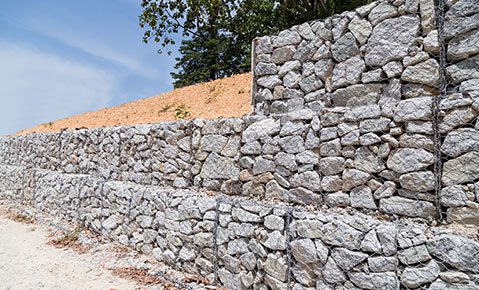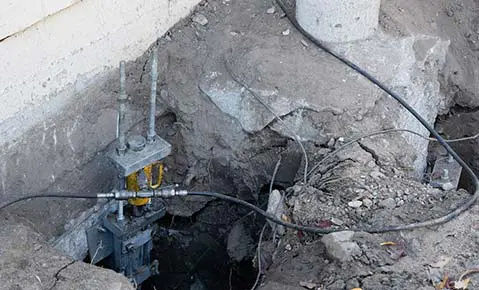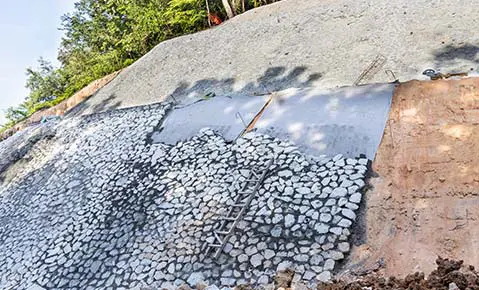You’re looking to work in Los Angeles to expand your business and reach new prospects. Business is booming. You want to keep the high going. Then you find out some products can’t be used in the city for what you’re doing. You’re forced to adapt and find other producers that have a LARR.
You’re the supplier for these expanding businesses. Your products are used in parts of Southern California and Arizona after earning an ICC report. But you learn your product can’t be used in LA without a LARR.
You’re the engineer in the city of LA working with contractors to figure out the best method for foundation repair. The only problem is the products that can be used are limited within the city limits in certain areas. You need to figure out which ones have a LARR.
You’re asking yourself: what the heck is a LARR?
Dalinghaus Construction has inspected over ten-thousand homes, having serviced over one thousand. Many foundation repair projects we’ve done have been in the city of Los Angeles. When it comes to our suppliers and which of their products can be used in LA, we’ve had to look in-depth and understand how a LARR limits manufactured products in the city.
Only product suppliers need to deal with a LARR
LARR stands for Los Angeles Research Report, which validates what products can be used and/or what the products can be used for in the city of Los Angeles. It’s a part of the Los Angeles Department of Building and Safety product suppliers endure for approval of their products in LA. A LARR acts as an ICC report strictly in the city of LA. If you want your products to be used for foundation repair in LA, you are required to have a LARR.
The ICC
The ICC (International Code Council) – not to be confused with the International Criminal Court – is a third-party tester that creates reports to validate products suppliers make and what’s done with them. The ICC evaluates building products, materials, and systems for code compliance.
For instance, some producers might say their push piers can handle 300,000 pounds. The ICC will either confirm the claim or they may find those push piers can only handle a maximum of 50,000 pounds and put it in their report. The reports provided by the ICC confirm the capacity and/or tensile strength of everything used in construction.
Do I have to test for an ICC report and LARR to validate products?
You used to be required to do independent testing for each report in the past. You first needed testing on a product to get an ICC report followed by another test for a LARR. It was redundant, time-consuming, and expensive. The LARR would validate the ICC report, but producers would pay a hefty fine. Many producers didn’t want to work in the city of LA because of this.
You no longer have to test for both.
Los Angeles is not required to do testing if you have an ICC. All you need to do now is apply for a LARR and submit your ICC to be granted both. So a LARR will validate your ICC report. Still redundant. Only a little less.
Sounds like a plethora of fun to deal with, am I right?
Every project will go through the ICC
Everyone goes through the ICC because it is validated everywhere. If you want to work in the city of LA or have a project approved there, you need to have the LARR.
Many people don’t want to work in the city of LA. The extra step of acquiring a LARR makes the process take longer.
It’s like doing a race with hurdles, only to have your track triple the number of obstacles to jump over. Those extra hurdles require more effort on your part and take additional time to jump over.
LARR can impact foundation repairs
Foundation repair contractors don’t need a LARR to service. However, a LARR can limit products contractors use for repair. If a product supplier has an item a contractor typically uses without a LARR, that contractor would need to use a different or alternate product that can be used in LA. The project will still be completed with no problem, but the products used would be different.
There is a chance you will have to resort to different companies and their products to finish a project in LA. Piers other companies’ supply can be marked up 20% higher than normal, increasing the overall repair cost.
And even though a LARR validates ICC reports, a LARR can further restrict a product’s use.
Example: An ICC report says helical piers from supplier X can be used for repair and new building construction. A LARR will still validate the ICC report for supplier X but limit their helical piers in the city of LA for repair only.
How does a LARR benefit a consumer in need of foundation repair?
It doesn’t.
The restrictions a LARR puts on products can be a detriment to the consumer. Some products can’t be used for particular foundation repair projects, forcing the contractor to find another supplier with a LARR. If the cost of the new products costs more by any percentage, the cost of the foundation repair also increases.
Trying to expand products and business into the city of Los Angeles takes extra time. The extra time can be well worth the extra business. Performing foundation repair is one thing, but new building construction in one of the biggest cities–with some of the largest buildings on the map–can bring new ventures to your doorstep. Many of these buildings will have deep foundations you can help your business be a part of. If you’re unsure what deep foundations are, learn more about them in our article What is a Deep Foundation?


